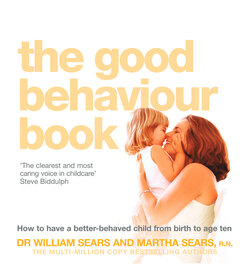Читать книгу The Good Behaviour Book - Марта Сирс - Страница 34
synthetic substitutes
ОглавлениеSoothing babies has become big business. There are vibrating beds, lullaby-singing teddy bears, battery-operated swings, and bottle holders. These synthetic sitters are snapped up by tired parents in hopes of making life with baby easier. While many parents need a break, and artificial soothers can provide this occasionally, a steady diet of synthetic subs will sabotage your discipline. Using your own resources when the going gets tough boosts your creativity, your patience, and your confidence – all of which you will need to discipline your child. And if the use of artificial substitutes gets out of balance, your baby is at risk of learning to be comforted by things rather than people. As you browse through baby stores, hold on to your credit cards. Relying too much on synthetic help early on may set you up for later disappointment when you realize there are no substitutes for disciplining your child.
Attachment parenting promotes quiet alertness. Both research and our own experience have demonstrated that attachment-parented babies cry much less. So what do they do with their free time? They spend much of it in the state of quiet alertness. During waking hours, babies go through many types of behaviour: crying, sleepy, alert and agitated, and quietly alert. Babies are most attentive to their environment in the state of quiet alertness. By not fussing and crying, they conserve their energy and use it for interacting. The result is that they are more pleasant to be with. And because a responsive parent takes time to enjoy the baby when he is in this state, the baby is motivated to stay quietly alert for longer.
Attachment-parenting promotes trust. Being in charge of your child is an important part of discipline. Children need to know that they can depend on their parents not only to meet their needs but also to keep them on the right path. Authority is vital to discipline, and authority must be based on trust. It is crucial for baby to trust that he will be kept safe. An attachment-parented baby learns to trust the one person who is strongly connected to him. When an infant can trust his mother to meet his needs, he will also look to her to help him behave.
